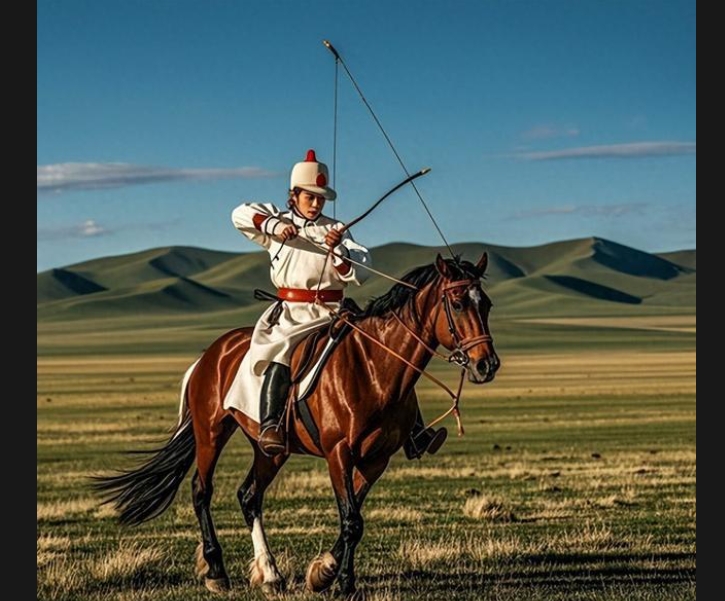Release time:2025-08-07 15:43:07Clicks:author:SPG ArcheryMain categories:Bows, Arrows, Archery Accessories

The opening passage of the "Doctrine of the Mean" contains a crucial passage: "When joy, anger, sorrow, or pleasure are not yet expressed, this is called zhong. When they are expressed in moderation, this is called he. Zhong is the fundamental principle of the universe, and he is the universal way of the universe. When zhong and he are achieved, heaven and earth are in their proper places, and all things are nurtured." This passage is most instructive for the practice of archery. It is both a principle and a method, and its core lies in two words: zhong and he. As expressed above, "zhong" refers to the natural state of tranquility before emotion is expressed, while "he" refers to the balance and tranquility that returns after emotion has been regulated. "Zhong" is the ultimate basis for the eternal existence of the universe, heaven, earth, and nature, referring to the state of "original being." Therefore, it is said: "Zhong is the fundamental principle of the universe." And "he" refers to the process of harmony and integration of the universe, heaven, earth, and nature, referring to the manifestation of "capability to be." Therefore, it is said: "He is the universal way of the universe." Therefore, only by upholding "zhong" and achieving "he" can heaven, earth, and place be in their proper places, and all things in nature be nurtured and flourish.
As one of the creatures of nature, humans all adhere to this "fundamental principle" and "universal way." For humans, "zhong" (meaning "Zhong") is the state of mind when one is not, or is not, influenced by external forces; it is a genuine, innate existence. Joy, anger, sorrow, and happiness are common human emotions. The "Li Yun" chapter of the "Book of Rites" states: "Joy, anger, sorrow, fear, love, hate, and desire—these seven emotions are inherent without learning." Undoubtedly, these seven emotions are innate, and children are exposed to them day by day, becoming inveterate and difficult to reverse. They are easily swayed by the forces of their surroundings, tossing themselves through the seven emotions unconsciously. Medical practitioners also categorize the seven emotions as "joy, anger, worry, thought, sadness, fear, and shock." The Yellow Emperor's Classic of Internal Medicine further summarizes the impact of these seven emotions on human health: "All diseases arise from qi. Anger causes qi to rise, joy causes qi to slow, sadness causes qi to dissipate, fear causes qi to descend, shock causes qi to become chaotic, fatigue depletes qi, and thought causes qi to stagnate." For individuals, the outburst of these seven emotions without effective control inevitably harms both body and mind. For groups, the intertwining of these seven emotions among individuals without proper regulation harms the community, making mutual trust and reliance impossible.
"Joy, anger, sorrow, and happiness, when not expressed, are called zhong" (meaning "zhong" or "meaningful") exemplifies the concept of zhong (meaningful) through familiar human emotions, making it easy to understand and resonate. Simply put, zhong (meaningful) refers to the state of zhong (meaningful) when desire is not expressed. This is the state of zhong (meaningful) within a psychological context. In fact, there's another side to this, unspoken. It's the natural state of the body's physiology, free from psychological and emotional interference. That state is also "centered," the physical and physiological "centeredness." This state of unified body and mind is the truest, most virtuous, and most beautiful state of archery. The body and mind are naturally pure, the spirit is clear and self-aware, and the target is hit without effort. Therefore, we can say that when the bow, arrow, and person are perfectly matched, and the archer's movements and technique are perfected, every arrow is inherently on target. In other words, the arrow is naturally on the bull's eye. This is the true manifestation of the archer's inherent "centeredness." If the body and mind are inherently "centered," then the arrow will also be "centered." The reason a shot misses the mark is simply because lust triggers distorted movements and technique, causing it to deviate from the target.
Let's explain this principle another way. For example, when an archer hits the bull's eye while in a state of unity between body and mind, this means they are in their most genuine, virtuous, and beautiful state. Their mind and body are naturally pure, their spirit clear and self-aware, and they shoot the arrow perfectly without any effort. We have filmed the entire process. Now, we will replay the video starting from the moment the arrow hits the bull's eye, rewinding all the way back to the moment the archer prepares to shoot, and then replaying it until the arrow hits the target. Then, we will rewind again and replay again... Repeating this process several times will form a clear impression in our minds: the arrow originally hit the bull's eye. We are simply rewinding the video to observe the entire process and details of the archer's shot. Slowing down the action to play it back may even make the effect more intense. The practice of Archery is premised on this belief: the belief that everyone is endowed with a state of life called "Zhong," the very essence of life. Archery is used to confront, discover, and maintain this state. We believe that the fundamental state of life is inherently Zhong, and therefore, we also believe that the arrows we shoot are inherently Zhong. Therefore, practice is about experiencing and realizing this long-lost state of life through archery, and nurturing and maintaining it in daily life, restoring depth, tranquility, and brightness to one's life. This is the primary principle and effort of Archery practice—maintaining the Zhong.